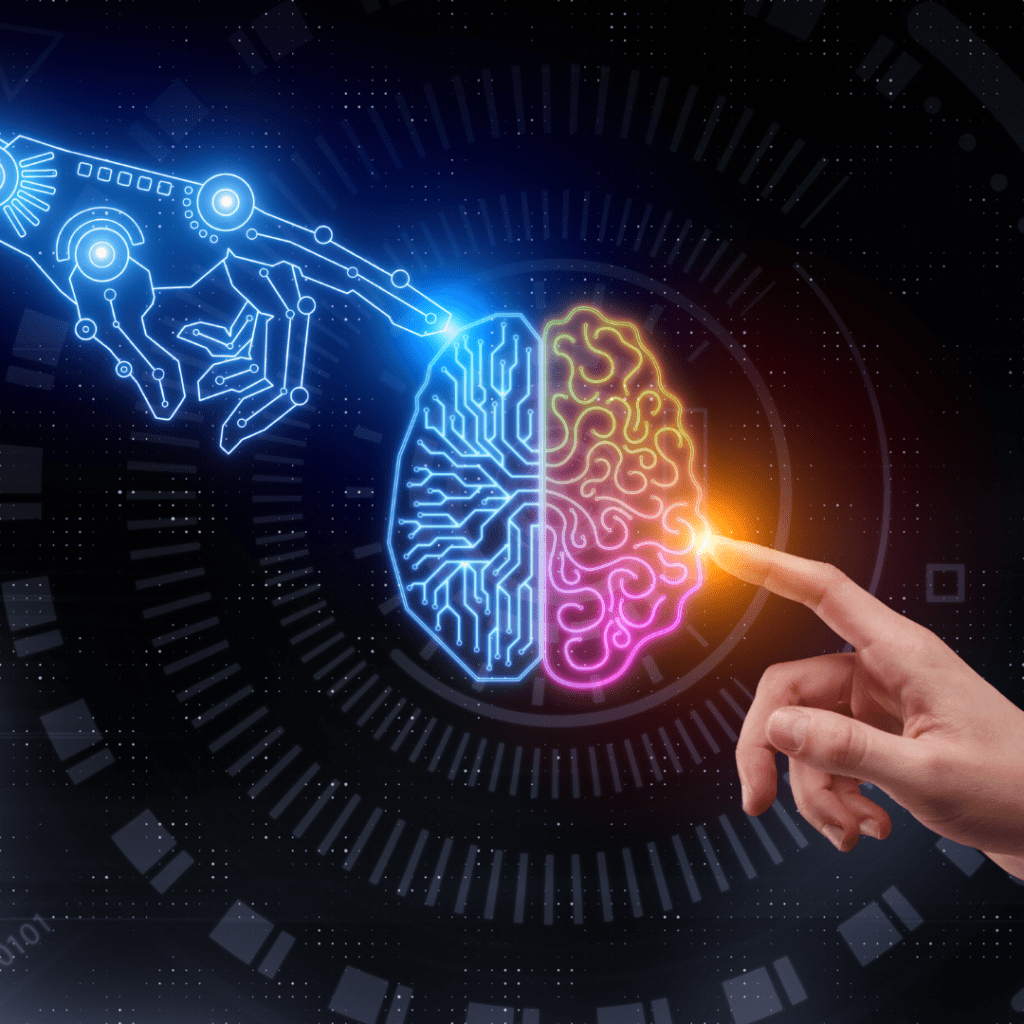技術的進化のダイナミックな世界において、洗練された人間のような機械が私たちの人間性を侵食するという考えは迅速に払拭されます。
むしろ、この進歩は私たちの人間的な資質を高め、豊かにし、私たちをより高い人間性の次元へと引き上げることを約束します。
クリスティアン・ハモンドノースウェスタン大学の著名なコンピュータサイエンスの教授である彼は、この考えを要約し、次のように述べています: 「私たちが機械を人間化するとき、私たちは自分自身を機械化するのをやめます。」
ルーティンで単調なタスクを機械に委任することによって、私たちはより創造的で知的に刺激的な活動に従事する自由を得ます。このシフトは個人の成長を促進し、自己実現へと導きます。

人間と機械の共生
技術の進歩は、人間と機械の間に相互に利益をもたらす関係を育んできました。これにより私たちの能力が向上しました。このパートナーシップは、かつてはどちらの当事者にも達成できなかった驚異的な成果を達成します。基本的な道具の創出から身体的な強さの増強、最小限の人間の監視を必要とする物理的労働を減らす機械の開発まで、この馬車から自動車、電信から電話への進化が私たちの進歩を示しています。
自動化と高度なMachine Learning
自動化への進展と高度なアルゴリズムの使用により、機械は最小限の人間の介入で動作できるようになりました。この進化により、電話はユーザーの習慣に適応するスマートデバイスに変わり、自動車はGPSとクルーズコントロールを備えた半自律型車両に変わり、完全自動運転能力に向かっています。Machine Learning、コンピュータビジョン、自然言語処理を取り入れることで、機械は現在、自律的にタスクを実行し、人間のニーズを予測し、ほとんど入力なしで満たす能力が高まっています。

相互接続されたグローバルブレインに向けて
私たちが進化するにつれて、人間と機械の相互作用はより深い共生関係へと深まっています。 モノのインターネット (IoT) に変わりつつあり 身体のインターネット (IoB)、ウェアラブルや埋め込まれたセンサーを通じて人間と技術の相互作用を強化しています。埋め込み可能なRFIDチップ、脳-コンピュータインターフェース、筋肉制御義肢などの革新が人間の能力を向上させており、脳チップのようなデバイスが義肢の強化を提供し、テレパシー通信を可能にする未来を示唆しています。
人間中心の技術開発
技術開発者にとって、人間中心のデザイン原則の重要性は極めて重要です。アクセシビリティ、透明性、価値の提供を確保することは重要です。認知負荷を最小限に抑え、直感的なテクノロジー、例えば自然言語処理を使用した口頭インタラクションは、人々に効果的にサービスを提供します。アクセシビリティ、データ処理の透明性、パーソナライズされたサービスの提供を優先することが、技術の進展に沿うための鍵です。
データ分析におけるGenerative AIの活用
ますます依存が高まる 生成的AI データサイエンティスト、データアナリスト、ビジネスオーナーによってデータ処理とインサイト生成が加速され、データ駆動型の意思決定が強化されます。例えば、 NextBrain AI インサイトの抽出を迅速化させるだけでなく、専門家チームとの相談のようなインタラクティブなエンゲージメントを促進します。の変革的な可能性を発見してください。 NextBrain AI データ分析における 今日デモをスケジュールする.


 +34 910 054 348
+34 910 054 348 +44 (0) 7903 493 317
+44 (0) 7903 493 317